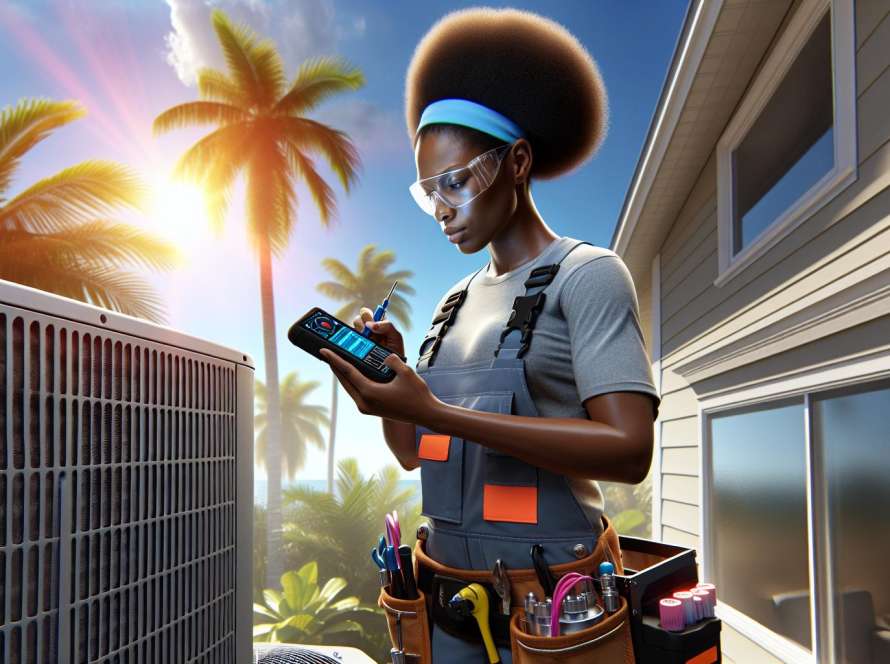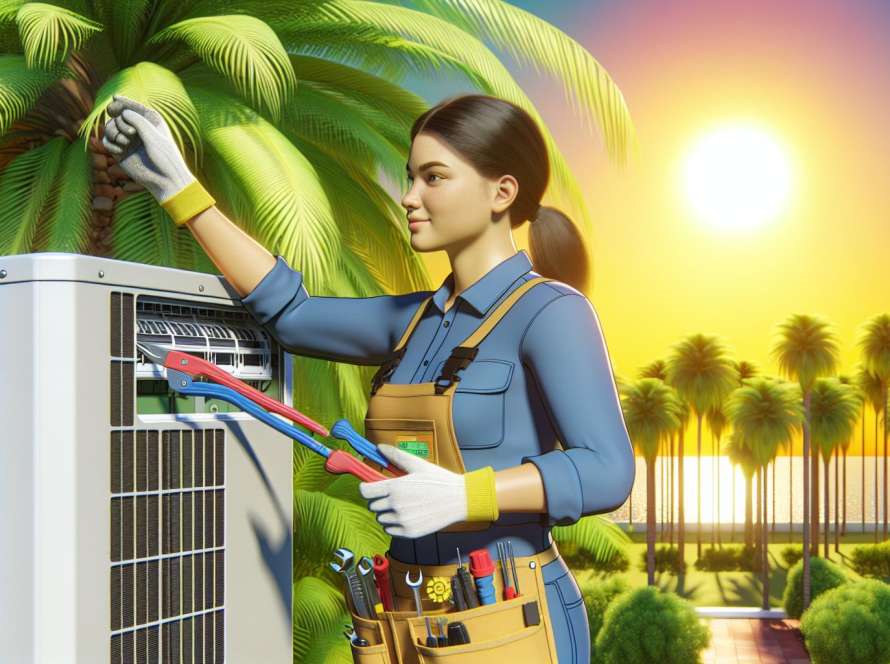Understanding the Effects of Salt Air on AC Units
Salt air can have detrimental effects on air conditioning units, impacting their performance and longevity. It’s essential to understand these effects to maintain and protect our AC systems. Let’s delve into the key implications of salt air on AC units.
For Beginners: Basic Knowledge
- Salt Corrosion: Salt in the air can accelerate corrosion of metal components in AC units.
- Reduced Efficiency: Salt buildup on coils can reduce the efficiency of the cooling process.
- Filter Clogging: Salt particles can clog air filters, affecting airflow and overall performance.
For Intermediate Users: Mitigation Techniques
- Regular Cleaning: Clean AC units frequently to remove salt residue and prevent corrosion.
- Coil Coating: Consider applying anti-corrosion coatings on coils for added protection.
- Filter Replacement: Regularly replace air filters to prevent salt accumulation and maintain airflow.
- Professional Inspection: Schedule regular inspections by HVAC professionals to assess corrosion and performance.
- Coil Treatment: Opt for specialized treatments to protect coils from salt corrosion.
- Humidity Control: Manage indoor humidity levels to minimize salt air impact on AC components.
By understanding these effects of salt air on AC units, we can adopt preventive maintenance practices that enhance the efficiency and longevity of our cooling systems.
Inspecting Your AC for Salt Air Damage

When it comes to inspecting your AC unit for salt air damage, it’s essential to pay attention to the details. Here’s a guide on how to assess and identify potential issues caused by salt air exposure at different levels:
For Beginners: Basic Checks
- Start by visually inspecting the exterior of your AC unit for corrosion, especially around metal components.
- Check for accumulation of salt deposits on the unit surface, which may indicate exposure to salt air.
- Inspect the air filters for any clogging or discoloration caused by salt particles.
- Ensure the condenser coils are free of debris and corrosion, as these can be vulnerable to salt air damage.
For Intermediate Users: In-depth Evaluation
- Use a multimeter to check the electrical components for any signs of corrosion or damage.
- Conduct a thorough cleaning of the evaporator coils to remove any salt residue that may affect efficiency.
- Consider performing a pressure test to detect any leaks that could be exacerbated by salt air exposure.
- Monitor the system performance closely to identify any unusual sounds or reduced cooling efficiency that may be attributed to salt air damage.
- Schedule a professional inspection by an HVAC technician specialized in salt air damage assessment.
- Invest in a corrosion-resistant coating for the coils and metal parts to prevent future damage.
- Explore humidity control options to reduce the impact of salt air on your AC unit.
- Consider upgrading to a marine-grade AC unit designed to withstand harsh coastal conditions effectively.
By following these inspecting guidelines at varying expertise levels, we can proactively identify and address salt air damage to ensure our AC unit’s optimal performance and longevity.
Cleaning and Maintenance Strategies for Salt Air Damaged ACs
For Beginners: Basic Maintenance Steps
- Inspect filters regularly and replace when necessary.
- Wash the exterior of the unit to remove salt deposits.
- Ensure proper drainage and keep the area around the unit clean.
For Intermediate Users: Enhancing AC Performance
- Clean coils and fins to prevent corrosion.
- Check electrical components for any signs of damage.
- Monitor system performance and address any issues promptly.
- Consider investing in a corrosion-resistant coating for added protection.
- Control humidity levels to reduce the impact of salt air on the AC.
- Upgrade to marine-grade air conditioning units for increased durability.
By following these cleaning and maintenance strategies at different levels, we can effectively address salt air damage to ensure our AC units operate efficiently and have an extended lifespan.
Preventative Measures to Protect Your AC from Salt Air Damage
For Beginners: Getting Started with Basic Protection
- Inspect Regularly: Check filters and remove any salt deposits.
- Clean Filters: Regularly wash or replace filters to prevent clogs.
- Maintain Drainage: Ensure proper drainage to prevent water accumulation.
For Intermediate Users: Enhancing Your AC’s Defense
- Clean Coils: Regularly clean coils to prevent corrosion.
- Check Electrical Components: Inspect wiring for any signs of damage.
- Monitor Performance: Keep an eye on the system for any efficiency issues.
- Invest in Coating: Consider a corrosion-resistant coating for added protection.
- Control Humidity: Maintain optimal humidity levels to reduce salt buildup.
- Upgrade to Marine-Grade Units: Consider marine-grade AC units for enhanced durability.
We’ll help you safeguard your AC against salt air damage with these preventative measures.
Conclusion
We’ve covered essential tips for protecting your AC from salt air damage, ranging from basic maintenance to advanced strategies. By following these guidelines, we can prolong the lifespan of our units and maintain optimal performance. Remember, regular upkeep and investing in corrosion-resistant solutions are key to combating the corrosive effects of salt air. With these measures in place, we can enjoy cool, crisp air without worrying about the detrimental impact of coastal environments. Stay proactive and prioritize AC care to ensure a comfortable indoor climate year-round.

